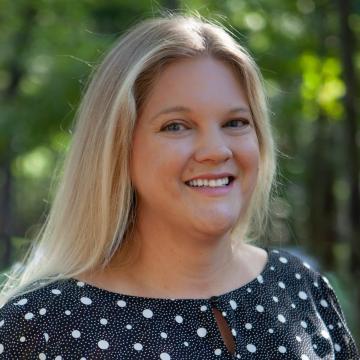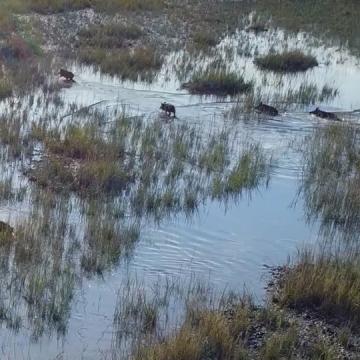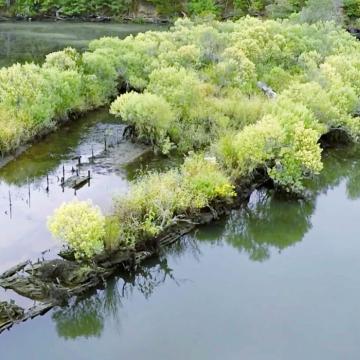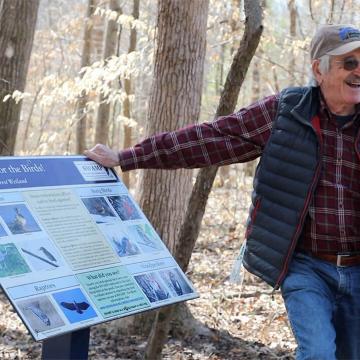-
NewsRewetting and restoring 250,000 acres of southern pocosin peatlands that had been drained for farming but now lie fallow could prevent 4.3 million tons of climate-warming carbon dioxide, now stored in their soils, from oxidizing and escaping back into Earth’s atmosphere each year, a Duke University study shows. That amount equals 2.4% of the total annual reductions in CO2 emissions needed for the United States to be carbon neutral by 2050.
-
NewsResearchers at Duke University have received a $248,000 grant from the U.S. Environmental Protection Agency to study PFAS exposure risks in the home environment.
-
NewsFirefighters have a 9 percent higher risk of being diagnosed with cancer and a 14 percent higher risk of dying from the disease than the general adult U.S. population, according to studies by the National Institute of Occupational Safety and Health and other agencies.
-
NewsKate Hoffman, an assistant research professor at Duke University’s Nicholas School of the Environment, has received a $3.4 million grant from the National Institutes of Health to study the impact of early-life exposures to semi-volatile organic compounds (SVOCs) on neonatal and early childhood immune function.
-
NewsHuman activities such as marsh draining for agriculture and logging are increasingly eating away at saltwater and freshwater wetlands that cover only 1% of Earth’s surface but store more than 20% of all the climate-warming carbon dioxide absorbed by ecosystems worldwide. A new study published May 5 in Science by a team of Dutch, American and German scientists shows that it’s not too late to reverse the losses.
-
NewsThe anti-fogging sprays and cloths many people use to prevent condensation on their eyeglasses when wearing a mask or face shield may contain high levels of per- and polyfluorinated alkyl substances (PFAS), a new Duke University-led study finds.
-
NewsCoastal marshes that have been invaded by feral hogs recover from disturbances up to three times slower than non-invaded marshes and are far less resilient to sea-level rise, extreme drought and other impacts of climate change.
-
NewsUsing data gleaned from the spread of COVID, researchers have created a mathematical model that can predict where pandemics or contagious disease outbreaks will most likely spread, in what patterns, and how quickly.
-
NewsJoel Dunn (MEM’04) Helps Create America’s First National Marine Sanctuary in 20 Years
-
NewsRecent Duke grad Alexandra DiGiacomo (BS ’20) is using drones to better understand how rising seas, warming waters and rapid development are killing protective saltmarshes at our coast, and what can be done to reverse the losses.
-
NewsSixteen years after the restoration of Upper Sandy Creek began, hundreds of species, some rare, now call the once-heavily eroded and degraded stream home, and nitrogen pollution flowing off Duke’s campus into downstream waters has been slashed by 75%.
-
NewsWhen it comes to storing carbon during prolonged periods of drought and heat, wooded peatlands at low-latitudes have a three- to five-fold advantage over other peatlands. An ancient class of slow-growing fungi is the reason why.
-
NewsSalt marshes, seagrass meadows and other coastal ecosystems are in rapid decline around the world. Restoring them is expensive and often unsuccessful. But an international team of researchers has discovered a way to sharply increase the odds of success by using biodegradable mats.
-
NewsMan’s best friend may also be man’s best bet for figuring out how environmental chemicals could impact our health. Researchers from North Carolina State University and Duke University’s Nicholas School of the Environment used silicone dog tags as passive environmental samplers to collect information about everyday chemical exposures, and found that dogs could be an important sentinel species for the long term effects of environmental chemicals.
-
NewsHigh-intensity fires can destroy peat bogs and cause them to emit huge amounts of their stored carbon into the atmosphere as greenhouse gases, but a new Duke University study finds low-severity fires spark the opposite outcome.













